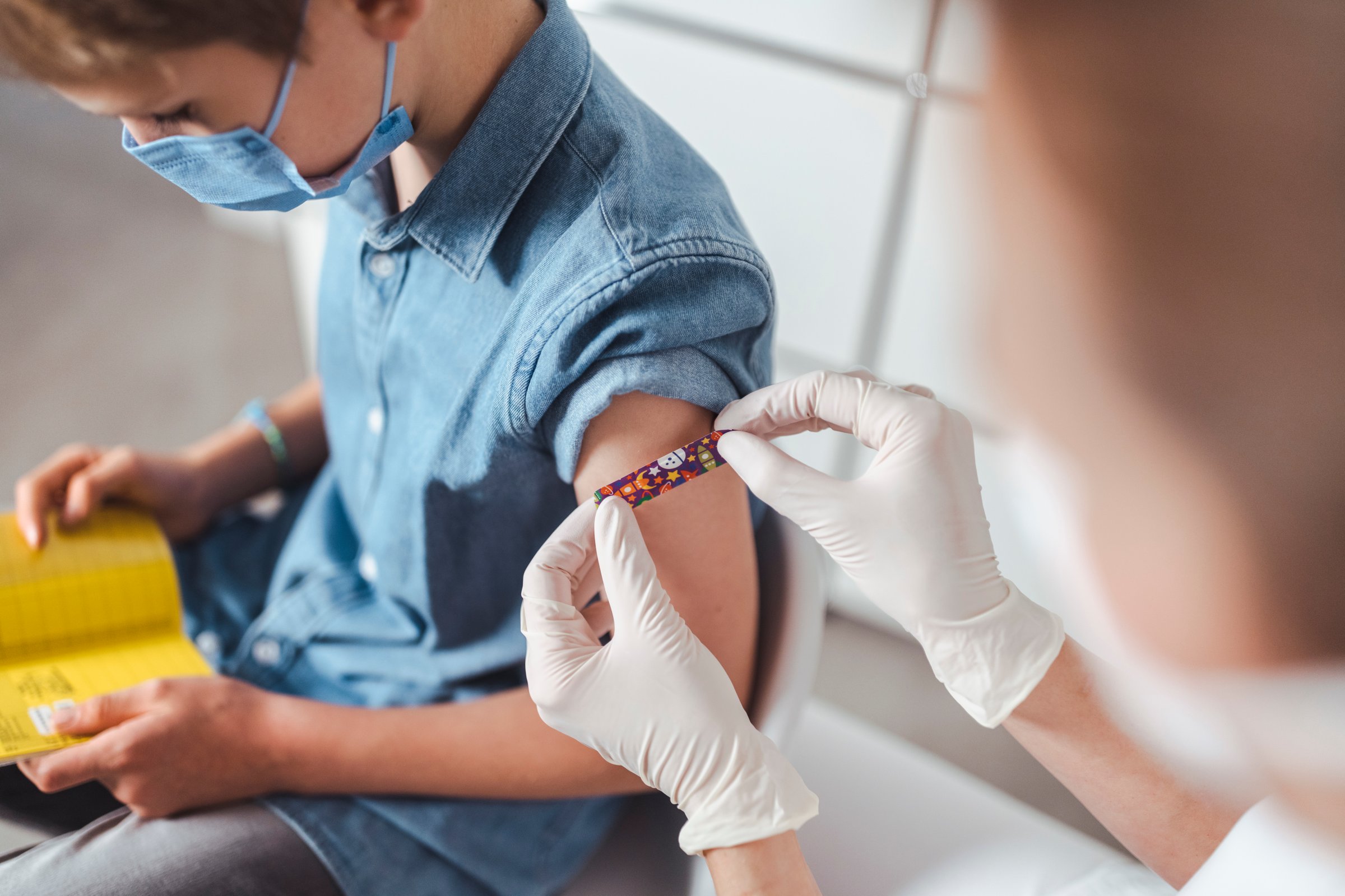
Multiple doses of the COVID-19 mRNA vaccines are safe in children as young as six months, reports the U.S. Centers for Disease Control and Prevention (CDC).
Research published in the CDC’s Morbidity and Mortality Weekly Report on June 8 included the first study of a third mRNA COVID-19 vaccine dose in young children. From June 2022 to May 2023, the parents of nearly 3,000 children submitted surveys to v-safe, the CDC’s post-vaccine symptom reporting system, about how their young child fared after receiving a third dose—either of the original or bivalent formulation—of Pfizer-BioNTech’s or Moderna’s COVID-19 vaccine. Data were also collected from the Vaccine Adverse Event Reporting System (VAERS), which allows vaccine manufacturers, health-care providers, and the public to report side effects they’ve experienced or documented.
In an analysis of the v-safe data, the CDC found that 37.7% of children ages 6 months to 5 years who had received third doses of an mRNA vaccine made by either manufacturer had no reported reactions. Of those who did have reactions to the vaccine, most were minor and included issues like itchiness at the injection site, irritability, and sleepiness.
Read More: 5 Good Reasons to Get Your Young Kid Vaccinated Against COVID-19
So far, about 550,000 young children in the U.S. have gotten a third dose, the study authors write, and VAERS has received just eight serious reports, which they classify as anything requiring hospitalization or resulting in disability or life-threatening illness. However, the authors write, “most parents of children who received medical care reported that care was unrelated to vaccination.” 78% of total reports made to VAERS represented vaccination errors, including the injection of expired or incorrect doses. Only 5% of these vaccination errors resulted in any health symptoms.
The safety of mRNA vaccines for young children was reiterated by another study published June 6 in the journal Pediatrics. Researchers at eight major U.S. health systems examined kids’ medical records for more than 20 health concerns that have been linked to vaccination more broadly—including myocarditis, seizures, and brain inflammation—during the three weeks following their COVID-19 vaccinations. They found no cases linked to COVID-19 vaccination.
Currently, vaccine uptake in the youngest age group remains low. As of May 2023, just 13% of children ages 6 months to four years had received even a single dose of a COVID-19 vaccine, according to the American Academy of Pediatrics. In some states, including Mississippi and Louisiana, the number is as low as 3%. Vaccines are protective even for children in this age group who have already had COVID-19, and hybrid immunity is likely just as effective for them as it is for adults.
The CDC has spent much of the last year working to reassure hesitant parents that vaccinating their young children is safe as they update their guidelines for all ages. For some who may have been waiting for additional research, the new findings may offer one more valuable piece of data.
More Must-Reads from TIME
- How Donald Trump Won
- The Best Inventions of 2024
- Why Sleep Is the Key to Living Longer
- Robert Zemeckis Just Wants to Move You
- How to Break 8 Toxic Communication Habits
- Nicola Coughlan Bet on Herself—And Won
- Why Vinegar Is So Good for You
- Meet TIME's Newest Class of Next Generation Leaders
Contact us at letters@time.com